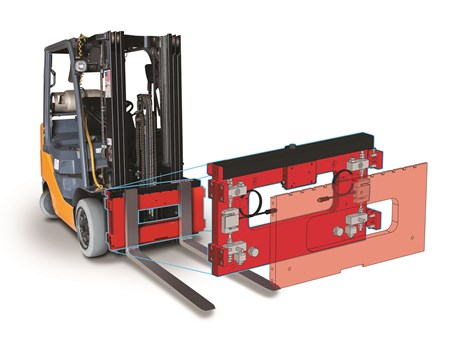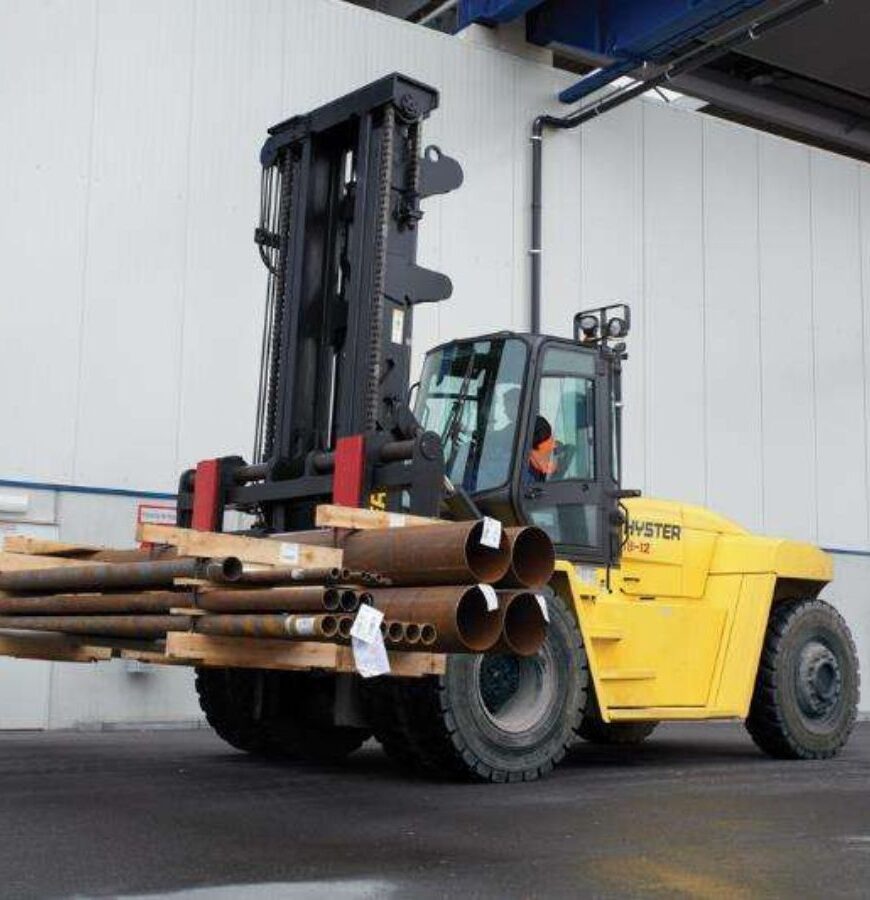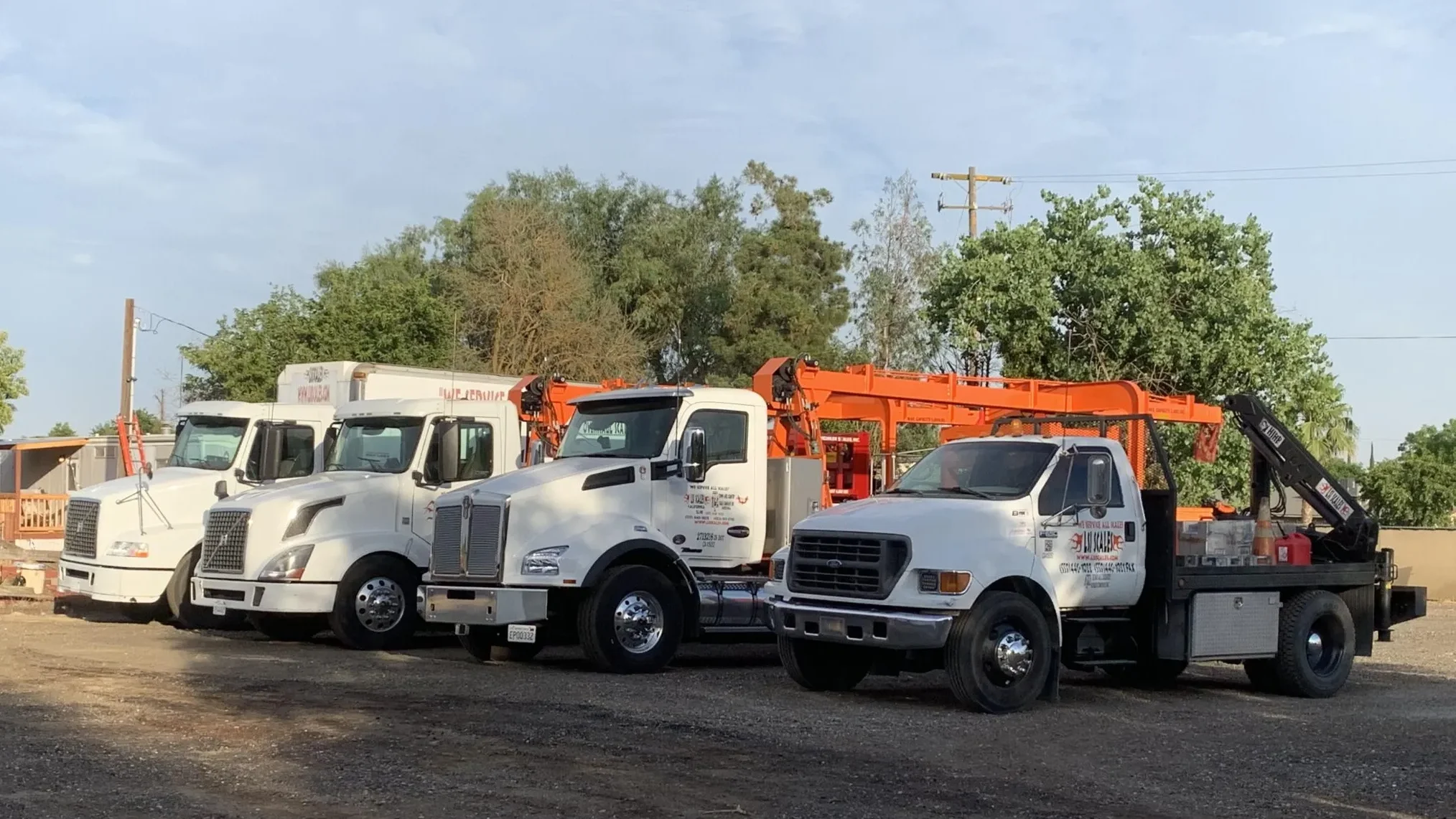Forklift Scales
Get high-precision forklift scales built to enhance material handling, boost warehouse efficiency, and cut loading errors by up to 40%. This page covers ±0.25% accuracy systems with real-time data logging, ERP integration, and custom configurations up to 50,000 lbs. Benefit from fast 48hr installations across CA & AZ, NIST-certified calibration, and predictive maintenance. Industries like 3PL, automotive, and food rely on our end-to-end weighing solutions. Call now for your free site survey and quote—optimize operations with proven ROI.
Request A Callback
Forklift Truck Scales: Precision Weighing for Modern Material Handling
Ever wonder how much time and accuracy your warehouse loses to inefficient weighing practices?If you’re in manufacturing, logistics, or any fast-moving industrial space, the answer might be more than you think. At LSI Scales, we specialize in forklift scales engineered for real-time material handling precision—helping you move faster, smarter, and with fewer interruptions.
With over 50 years of experience in industrial weighing, our solutions are designed to improve load capacity optimization and reduce downtime without compromising on accuracy. Built tough for demanding environments, our systems enable in-motion weighing that integrates seamlessly into your existing workflows. And with our dual-location service support in California and Arizona, fast response and tailored service are always within reach.
Looking for a smarter way to manage weight and workflow? Get in touch with our team—and read on to see how we solve critical operational challenges.
(559)446-1022
Give us a call:
(855) 440-1022
Give us a call:

5 Operational Challenges Solved by Forklift Scales
If you’re managing a high-volume warehouse or distribution center, you know that even minor inefficiencies can create major setbacks. From compliance fines to lost inventory, the ripple effects of manual weighing errors are both costly and avoidable. Our forklift scales are built to tackle these common bottlenecks head-on—improving warehouse efficiency and keeping your operations aligned with OSHA compliance standards.
- Manual Weighing Delays Traditional scale stations slow workflow. In-motion forklift weighing eliminates those time-consuming detours.
- Overloading Risks Prevent equipment strain and avoid DOT violations by ensuring every load is within safe, legal limits.
- Inventory Discrepancies Real-time data capture reduces miscounts and improves shipment accuracy—key for reducing write-offs.
- Safety Violations Stay compliant with OSHA regulations while improving employee safety and accountability.
- Shipment Disputes Built-in accuracy minimizes customer disputes by verifying exact weights before dispatch.
Looking to reduce loading errors by up to 40%? Let’s talk—and keep reading to see why hundreds of facilities trust our forklift scale systems.
Fully-Insured & Certified Expertise
Comprehensive Weighing Solutions
Strategic Location Advantage
Cost-Effective & Eco-Friendly
Monday–Friday, 8:00 AM – 4:30 PM
Fastest Response Time
All Work Fully Guaranteed
Over 50 years of reliability
Why 300+ Facilities Choose LSI Forklift Scales
Choosing the right weighing system isn’t just about meeting the minimum—it’s about maximizing performance, safety, and ROI. At LSI Scales, we design cost-saving equipment that delivers consistent accuracy, built specifically for demanding environments. Over 300 facilities across the U.S. trust our forklift scale systems because we back innovation with real-world results and long-term reliability.
- Military-Grade Construction Engineered with MIL-S-22698 compliant steel, our systems handle heavy use without sacrificing performance.
- High-Precision Sensors Achieve ±0.25% weight accuracy—critical for load consistency and regulatory compliance.
- Wireless Data Logging Integrated systems transmit real-time weight data, reducing paperwork and manual entry errors.
- ISO 14644 Certified Design Cleanroom-compatible tech ensures safety for pharmaceutical and food-grade operations.
- Patent-Pending Shock Absorption Protects internal components from vibration and impact during high-traffic use.
Interested in the same proven technology trusted by industry leaders? Reach out to our team—and read on for a closer look at how our core tech works.
Trust Our Tried and Tested Process
Contact Us 24/7, 365
Available Every Day, All Day, to assist with weighing solutions and provide prompt, lasting results.
Fast Response
In the event of a weighing emergency, our team is ready to respond promptly and initiate immediate solutions.
Fully Equipped
We utilise the latest tools and equipment to deliver professional weighing solutions to all clients.
Thoroughly Trained
Our team is made up of highly skilled and experienced experts, all of whom provide excellent service.
Core Technology Breakdown
Curious about what makes our forklift scale systems so dependable in high-demand environments? The secret lies in a blend of precision engineering and smart connectivity. At LSI Scales, we’ve built our systems with industry-grade components that don’t just measure weight—they optimize operational accuracy with every lift.
- Strain Gauge Technology: Each scale uses high-sensitivity strain gauges that convert force into accurate, real-time weight data.
- Load Cell Calibration: Factory-calibrated and field-adjustable for long-term reliability, even in rugged warehouse conditions.
- IP67 Protection: Designed for moisture and dust resistance, ensuring durability across all weather and industrial settings.
- Cloud-Based Integration: Real-time data sync with cloud platforms for faster inventory updates and ERP/WMS compatibility.
Want to explore the technology driving our performance? Reach out to our team—or keep reading to see how we achieve ±0.25% accuracy in action.
How LSI Forklift Scales Achieve ±0.25% Accuracy
- Real-Time Weight Monitoring Sensors detect weight changes instantly, reducing lag between load and data capture.
- Automated Data Transmission Each lift triggers wireless updates, cutting out manual logging and paper trails.
- Seamless ERP Integration Compatibility with major WMS platforms ensures synchronized inventory movement and traceability.
- Workflow Efficiency From load sensing to system sync, the full process enhances visibility and reduces shrink.
Available 24/7, 365 Days a Year
Our work is guaranteed
Contact our fast response team
Absolutely no hidden fees
Forklift Scale ROI: Cutting Costs in Warehousing & Logistics
Industries That Rely on Forklift Scales for Smarter Material Handling
- 3PL Warehousing Enhanced cross-docking efficiency allows for real-time shipment verification, reducing turnaround times and increasing client trust.
- Automotive Our systems simplify parts inventory management and reduce miscounts during high-volume cycles.
- Food & Beverage Sanitary-grade scales meet compliance needs while supporting rapid load movements.
Your Expertise Matters: Read Reviews & Share Your Insights
EXCELLENTTrustindex verifies that the original source of the review is Google. Highly recommended. Their technicians are highly skilled, efficient and professional. Outstanding scales service, installation, troubleshooting and repairing.Trustindex verifies that the original source of the review is Google. Frank and the staff at LSI scales are the best. The Rice Lake truck scales are second to none. Would recommend them to anyone needing professional sales and service at a fair price.Trustindex verifies that the original source of the review is Google. Absolutely the best customer service.Trustindex verifies that the original source of the review is Google. LSI Scales are phenomenal Superb customer service And the owners work side by side with employees Very generous, supporting the local 4H & FFA.Trustindex verifies that the original source of the review is Google. Great people, great service, fair pricesTrustindex verifies that the original source of the review is Google. I can’t say enough about what a great company LSI Scales is! They pride themselves in outstanding customer service and pay attention to every detail! The owners are the most honest and hard working people I’ve ever met!!!Trustindex verifies that the original source of the review is Google. Great work.. always on time and budgetTrustindex verifies that the original source of the review is Google. Genuine honest people!Trustindex verifies that the original source of the review is Google. Used them at a plant I managed will always be my first and last call for scales and scale work
Always On Time, Always On Budget
Transparent & Fair Pricing
We’ll break down the cost of our services and ensure that you get the best price for your situation.
Punctual, Professional, Proactive
Our team can be with you in no time to deliver expert Weighing Solutions with speed and efficiency.
Cost-Effective & Eco-Friendly
We take an environmentally conscious approach while still delivering affordable solutions to clients.
Highly Rated
Past clients have been left wholly satisfied by our efforts and have left stellar reviews of our services.
Get in Touch
Reach out to our experts today and take advantage of our reliable Weighing services. Call now at (559)446-1022 or fill out the contact form below.
Seamless Forklift Scale Installation: Dual-State Service Advantage
- <48hr Installations in CA & AZ Our certified teams offer rapid deployments with local expertise and flexible scheduling.
- Five-Step Process From site evaluation to post-install testing, we manage everything for a seamless rollout.
- Geo-Targeted Support Strategically based in California and Arizona, our techs are never far away when service is needed.
Custom Forklift Scale Solutions for Unique Loads
Have a specialized workflow that standard weighing systems just can’t handle? At LSI Scales, we understand that off-the-shelf equipment doesn’t fit every operation. That’s why we offer fully customizable weighing solutions engineered for unique load requirements—whether you’re operating in extreme temperatures, moisture-prone areas, or hazardous environments. Our engineering team works directly with you to configure systems with capacities ranging from 500 to 50,000 pounds, ensuring performance that matches your exact specifications.
From explosion-proof models used in chemical processing to lithium battery-compatible systems in high-efficiency logistics, each solution is tailored for your industry and application. Our deep technical bench allows us to design with precision while maintaining safety and compliance standards across all builds.
Need a forklift scale built around your operation—not the other way around? Let’s talk—and keep reading to explore our rigorous testing and certification process.
(559)446-1022
Give us a call:
(855) 440-1022
Give us a call:

Rigorous Testing: NIST-Certified Forklift Scale Calibration
Looking for a forklift scale that performs consistently under pressure? At LSI Scales, every unit goes through a comprehensive series of vibration testing, thermal exposure trials, and moisture resistance checks before leaving our facility. Our commitment to quality assurance is backed by NIST-certified calibration protocols, ensuring each system meets national standards for industrial precision.
To prove it, we offer a 3-year performance guarantee, giving you confidence that your investment will stand up to daily use in even the harshest working conditions. Whether it’s warehouse humidity or constant motion across loading bays, our technology maintains stability and reliability over time.
Clients can request access to our full certification documentation and review stress-test visuals as part of our transparent quality process. Want weighing accuracy you can count on long-term? Reach out to our team—and read on to discover how we keep your systems running with predictive support.
Industrial Forklift Scales FAQ
We’ve retrofitted 1,200+ forklifts with custom solutions like: – Explosion-proof scales for chemical plants (Class I Div 1 compliant) – Low-profile 2″ height scales for confined warehouses
“LSI engineered a dual-scale system that cut our loading errors by 40%” – Aerospace Parts Supplier Case Study
Explore retrofit options →
Our NTEP-certified scales deliver ±0.25% accuracy even at 60 lifts/hour, with: – Auto-tare function for mixed pallets – 4G/Wi-Fi enabled real-time data logging
| Application | LSI Precision | Industry Avg |
| 500lb Pallet | ±1.25lbs | ±5lbs |
| 10k lb Container | ±25lbs | ±100lbs |
What our clients say

“I’ve relied on LSI Scales for years. Their quick repairs and accurate calibration are why our measurements are always on point. They’re essential to our precision scales!”
John S. - Manufacturing Manager
“LSI Scales excels in precision for our mining site. Their heavy-capacity scales and expert calibration guarantee pinpoint accuracy. They’ve been key to our operation’s success for years.”
David H. - Mining Operations Director
“LSI Scales is our go-to for peak season rentals. Their vast inventory and quick delivery have saved us countless times. We rely on LSI Scales, and they always deliver!”
Sarah M. - Logistics Coordinator
LSI Scales has been a game changer for our livestock operations in Fresno. Their quick calibration services ensure our scales are always accurate, which is crucial for our business. Highly recommend their expertise!
John D. - Fresno, CA
As a logistics coordinator in Phoenix, I rely on LSI Scales for peak season rentals. Their vast inventory and prompt delivery saved us during a critical time. They truly understand the needs of their clients!
Sarah M. - Phoenix, AZ
For our mining operations in Las Vegas, LSI Scales has provided exceptional service. Their heavy-capacity scales guarantee pinpoint accuracy. Their expert technicians are always ready to assist!
David H. - Las Vegas, NV
LSI Scales has been our trusted partner for industrial scales in Portland. Their scale installation and maintenance services are top-notch, ensuring our operations run smoothly. A reliable choice for any business!
Emily R. - Portland, OR
In Seattle, LSI Scales stands out for their commitment to precision. Their quick repair services have kept our operations efficient, and their knowledgeable staff is always a pleasure to work with!
Michael T. - Seattle, WA
Forklift Scale Support & Predictive Maintenance
If downtime is a deal-breaker in your operation, you’re not alone—every minute matters in fast-paced material handling environments. That’s why at LSI Scales, we offer around-the-clock service and proactive support to keep your forklift scales running at peak performance. Our predictive maintenance plans, built around system analytics and remote diagnostics, help catch potential failures before they disrupt workflow.
- 98.6% Uptime SLA We guarantee system reliability through continuous monitoring and preventative servicing.
- Emergency Repair Hotline When issues do arise, certified technicians are just a call away.
- On-Hand Spare Parts Inventory Fast replacements mean less time waiting and more time moving product.
From scheduled maintenance to immediate response, our support model ensures you’re never left in the dark. Looking for dependable scale uptime? Let’s connect—and read on to see how our full-scale solutions extend beyond forklifts.
Get in Touch
Reach out to our experts today and take advantage of our reliable Weighing services. Call now at (559)446-1022 or fill out the contact form below.
Get Your Forklift Scale Quote: CA & AZ Priority Service
Looking to equip your facility with dependable forklift scales—and need a fast, local response? At LSI Scales, we prioritize businesses across California and Arizona with rapid quoting, installation, and service coordination. Whether you’re outfitting a new warehouse or upgrading outdated equipment, our team delivers tailored quotes backed by a Price Match Guarantee and volume discounts for multi-unit orders.
Every quote begins with a free site survey, ensuring we understand your workflow and can recommend the best-fit system. Our local technicians are available for same-week installation, and we’re just a message or call away.
Reach us directly at (559) 446-1022 or email lsiscales@lsiscales.com. You can also connect with us on Facebook and Instagram, or use our contact form to get started.
Ready for a forklift scale that meets your exact needs? Let’s get your quote in motion—and explore what sets our service apart across the West Coast.
(855) 440-1022
Give us a call in Arizona :
(559)446-1022
Give us a call in Fresno:

